Year 3 Teaching Resources
Explore printable worksheets, digital activities, games and more Year 3 resources, all aligned to the Australian curriculum! The teacher-created resources have all been designed with primary teachers and students in mind to meet the special needs of children as they transition into the middle years of their primary school education.
Carefully curated and thoroughly reviewed by the expert teachers of the Teach Starter team to ensure they're classroom-ready, our Year 3 resources can save you lesson planning time this school year with editable and differentiated options at the ready.
Teach Starter’s Year 3 resources utilise a vast array of resource types and have something for every learning area. Here's just a taste of what you'll find for your classroom!
- Spelling words and English worksheets
- Fractions activities and Maths worksheets
- Social and emotional learning activities
- Narrative writing stimuli
- Language conventions practice
- And so much more!
Are you new to teaching Year 3? Here's a look at what this year of primary school is all about!
What Is Year 3 in Australia?
Year 3 sits right in the middle of primary school for most students in Australia as the fourth year of compulsory education.
How Old Are Kids in Year 3?
The exact age of students will vary slightly by state (and birthday!), but most children in your Year 3 class will be 8 to 9 years old.
What Do Students Learn in Year 3?
Year 3 is a big one for Australian students. Many will sit the NAPLAN tests, and more than a few will hit double digits before the year is through. This is a big year for Maths between the introduction of more complex fractions and formal multiplication, as well as even more skill-building in other learning areas.
Exactly what they're expected to learn will depend to some degree on the state or territory where you are teaching, but here's a look at what your students can expect to encounter in the key areas of the curriculum!
English
Year 3 students continue to develop their reading, writing, speaking, and listening skills in their English lessons. Reading will involve more complex texts, including longer novels, non-fiction texts, and poetry.
Students will also be expected to analyse these texts more deeply, examining themes, character development, and literary techniques. Comprehension skill-building will require deeper analysis of texts and drawing inferences from what is read.
While Year 2 instruction focuses on basic writing skills such as sentence structure and punctuation, this older group of students will move toward more advanced writing skills such as paragraphing, using descriptive language, and organising ideas in a logical way.
Grammar and spelling will also become a greater focus this year, with an emphasis on understanding and applying more complex grammar rules and spelling patterns.
Maths
Fractions feature front and centre of the Year 3 Maths curriculum. Students will learn to identify, compare, and order unit fractions (those being fractions with a numerator of 1), as well as use them in simple problem-solving contexts.
We already alluded to this being a big year for multiplication, and is it ever! Year 3 students learn the basic multiplication facts — such as 2 x 2 = 4 and 3 x 3 = 9 — and they begin to use these facts to solve multiplication and division problems. They also learn to interpret and create simple multiplication and division problems.
Students will have the chance to build upon their understanding of measurement concepts from Year 2, including length, mass, and capacity. They'll learn to measure and estimate using standard units, plus how to compare and order measurements.
Maths students will expand their knowledge of 2D shapes this year, and they will begin to learn about three-dimensional shapes and their properties.
Place value is still a big part of maths, of course. Year 3 students expand their understanding of place value to include numbers up to 10,000, and they learn to read, write, and compare four-digit numbers. They also learn to use place value to solve addition and subtraction problems.
Science
Science instruction in Year 3 is more focused on building a deeper understanding of scientific concepts and their applications, as compared to Year 2. It also emphasises the development of scientific inquiry skills that will help kids become more proficient in conducting scientific investigations and communicating their findings.
Students in Year 3 learn to ask questions, plan and conduct investigations, collect and record data, and communicate their findings as part of their development of science inquiry skills. They spend a portion of the year learning about the characteristics of living things, including plants and animals. Year 3 students will have the chance to explore the life cycles of plants and animals, as well as learning about the needs of living things and their habitats.
While they're learning about things that live on Earth, they're also learning about the planet itself, exploring geological features such as rocks, soil, and minerals. They also explore heat energy and how it can be transferred from one object to another.
Last, but certainly not least, Year 3 students learn about the properties and states of matter, including solids and liquids (gasses are explored later on in primary school).
Humanities and Social Sciences
Building on the foundation set in Year 2, Year 3 HAAS lessons build a deeper understanding of historical events and concepts, as well as exploring the social and economic systems that underpin Australian society.
Students learn about the historical events, people, and places that have shaped Australia's history. They explore the concept of change and continuity over time and learn to use historical sources to investigate the past. Students also study significant cultural events celebrated in our country and how they contribute to Australia's diversity and identity.
Geography instruction will guide students as they learn about the physical and cultural characteristics of places and regions. They'll learn more about the representation of Australia as states and territories, and as Countries/Places of First Nations Australians. Students will also begin exploring Australia's neighbours such as New Zealand, Papua New Guinea, and Indonesia.
Civics instruction sees Year 3 students strengthening their understanding of what it means to live in a democratic society. They will draw upon their own personal experiences to examine why rules are important and to discuss how they can be active participants in the communities to which they belong.
Health and Physical Education
With their bodies rapidly changing, Year 3 students learn about the factors that influence their health and wellbeing, including the importance of good nutrition, hygiene, and sleep. They also learn about social and emotional health, including how to manage their feelings, develop positive relationships, and make safe and healthy choices.
In Year 3, there are a number of different types of safety on tap in lessons, including road safety, water safety, and personal safety. They develop an understanding of risk and learn strategies for staying safe in different situations.
Year 3 students also learn about the importance of being active and informed citizens in their community. They learn about the benefits of volunteering and begin to develop an understanding of the responsibilities and rights of individuals in society.
The Arts
In Year 3, students develop more advanced skills in drawing, painting, and other visual arts techniques. This includes studying the elements of art — such as line, shape, colour, and texture — and beginning to use these to create more complex artworks.
In music class, these children are learning all about musical notation and how to read and write simple music, while drama instruction explores different forms of drama, including role-playing, improvisation, and scripted performance. Students get the chance to learn about the elements of drama, such as character, plot, and setting, and begin to use these to create their own dramatic works.
- Plus Plan
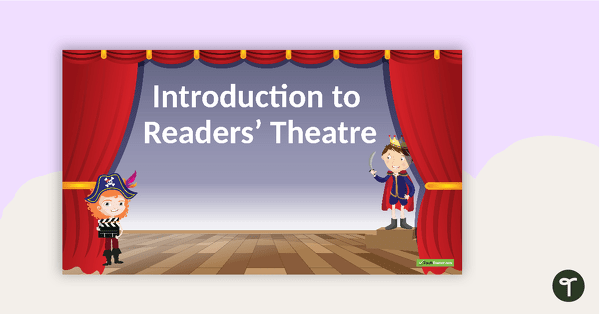
Introduction to Readers' Theatre PowerPoint
An 11 slide PowerPoint template to use when introducing Readers' Theatre to your students.
- Plus Plan
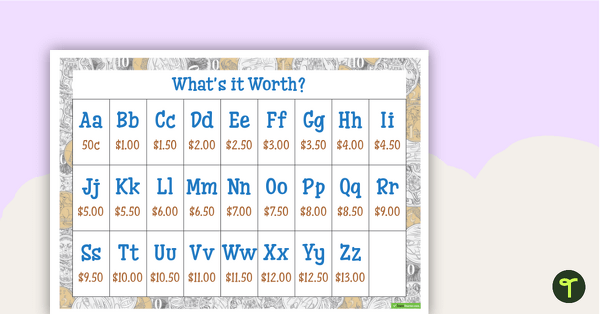
What's it Worth? Australian Currency Game
Use this What's it Worth? game when learning about the value of coins.
- Plus Plan
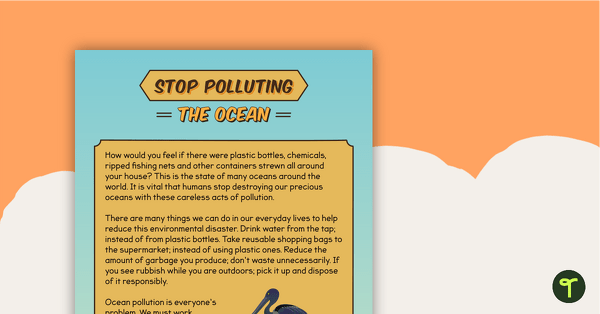
Sequencing Activity - Stop Polluting The Ocean (Persuasive Text)
A sequencing task using a persuasive text.
- Plus Plan
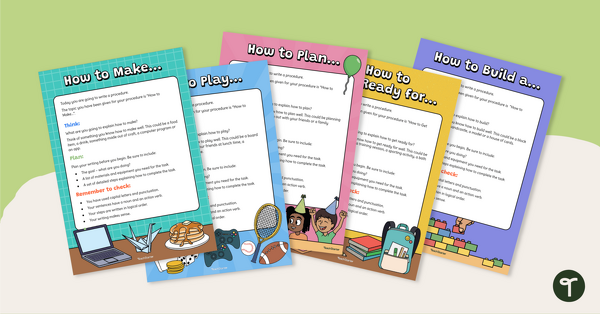
5 Procedural Writing Prompts
Use this set of 5 procedural writing prompts to assess your students’ procedural writing skills.
- Plus Plan
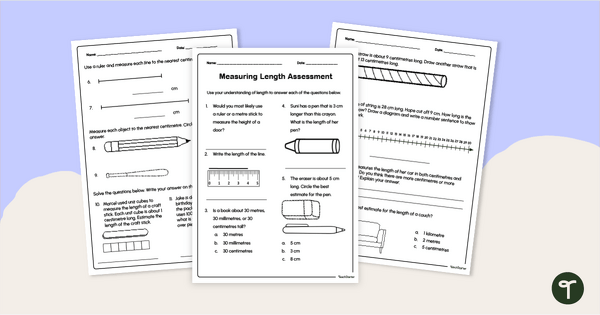
Year 3 Measurement Test - Measuring Length
Assess your Year 3 students' ability to measure length with a Year 3 Measuring Length Test.
- Plus Plan
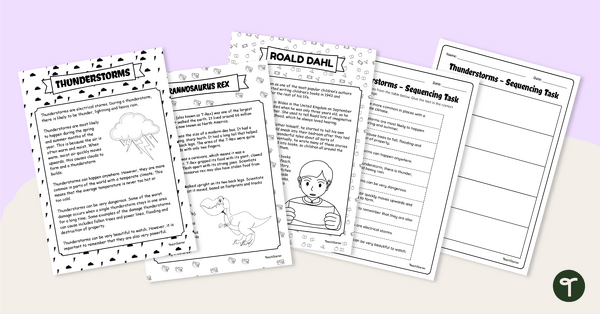
Sequence an Information Report – Cut and Paste Worksheets
Use these information report examples to teach your students about sequencing facts in a logical order.
- Plus Plan
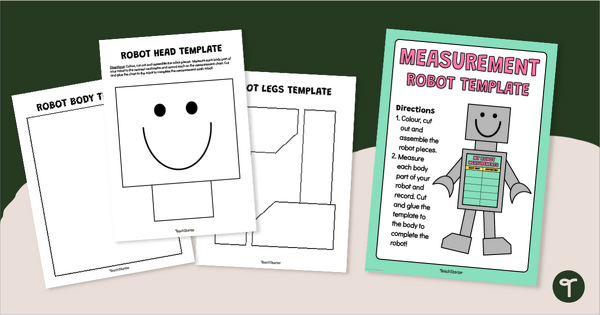
Measurement Maths Craft - Robot Template
Use a fun robot-themed maths craft with your students when learning about measuring to the nearest centimetre.
- Plus Plan
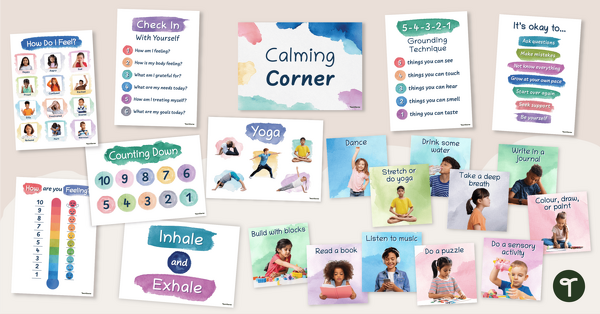
Calm Down Corner Classroom Decor Pack
Create a classroom calming corner with a printable Calm Corner Decor Pack.
- Plus Plan
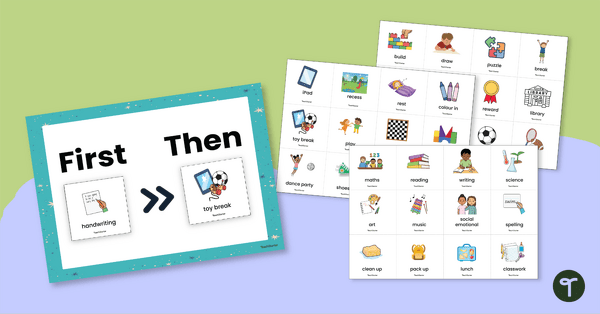
Visual First-Then Schedule for the Classroom
Communicate a sequence of events with this visual first-then board and set of 48 picture cards.
- Plus Plan
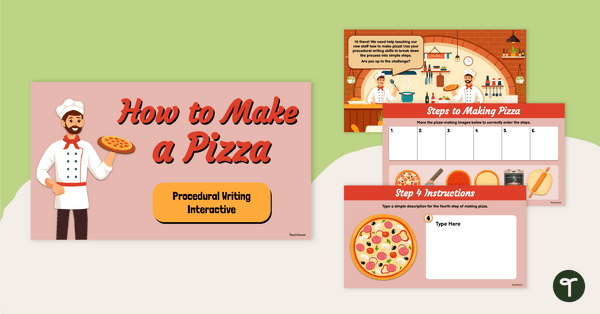
How to Make a Pizza Interactive Activity
Use this “How to Make a Pizza” procedural writing interactive activity to model the purpose, structural elements and language features of procedure texts.
- Plus Plan
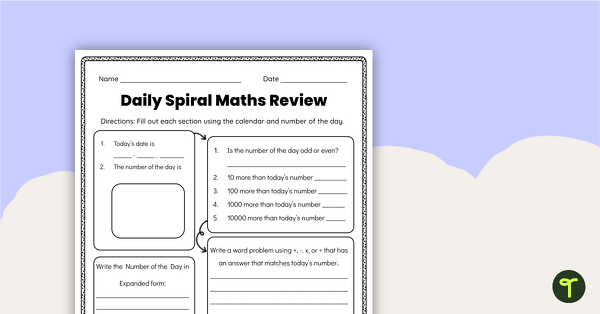
Daily Spiral Maths Worksheet (3-4)
Review a variety of place value and number sense standards with a daily spiral maths review worksheet.
- Plus Plan
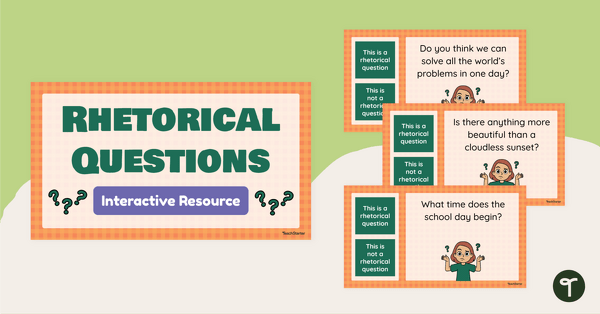
Rhetorical Questions Interactive Activity
Explore rhetorical questions with your students using this digital game perfect for your persuasive writing lessons.
- Plus Plan
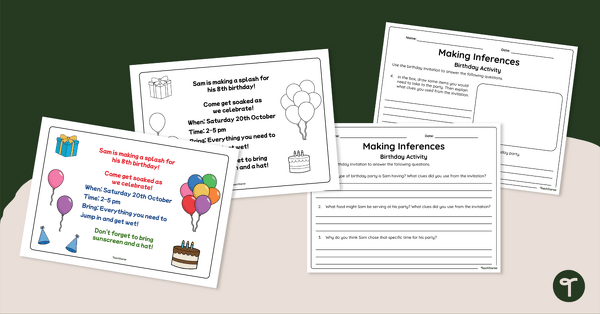
Making Inferences – Birthday Activity
Teach your students how to make inferences with this birthday invitation activity.
- Plus Plan
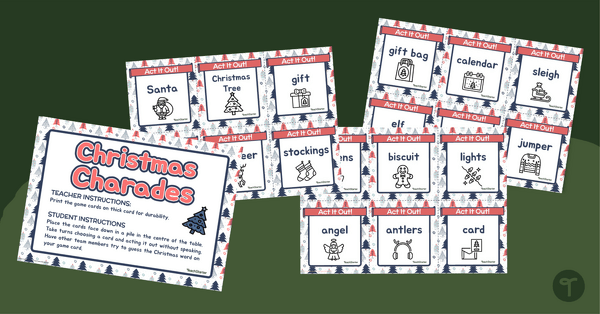
Christmas Charades Game Cards
Have fun at your classroom Christmas party by playing an exciting game of Christmas Charades!
- Plus Plan
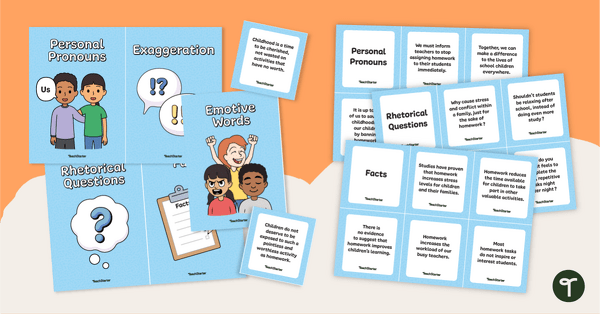
Persuasive Devices Sorting Activity
Explore persuasive devices with your students using this set of sorting cards.
- Plus Plan
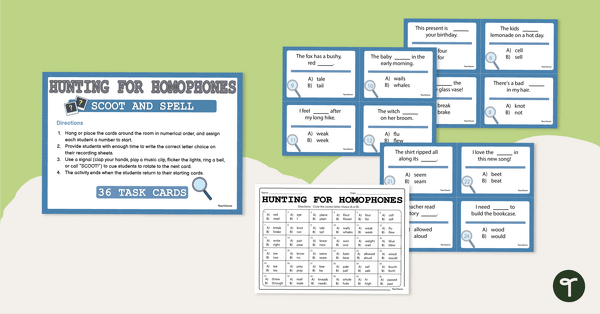
Hunting for Homophones – SCOOT! Task Cards
Get your students to identify the correct homophones in sentences with this set of 36 task cards for your vocabulary lessons.
- Plus Plan
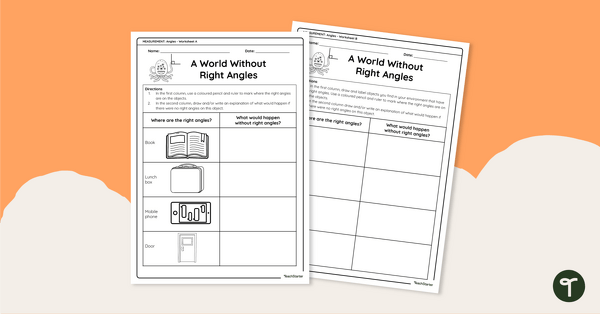
A World Without Right Angles – Worksheet
Help your students explore the vital role that right angles play in our environment with this differentiated maths worksheet.
- Plus Plan
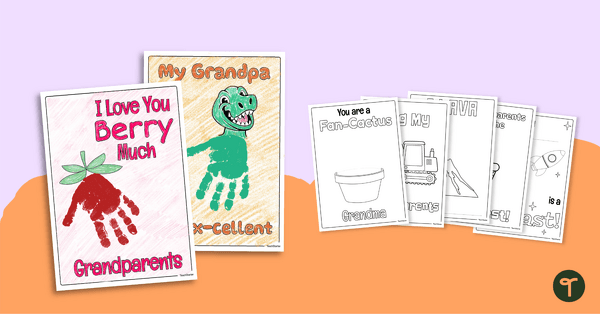
Grandparents' Day Handprint Gift Templates
Give grandma and grandpa a special keepsake with fun Grandparents’ Day Handprint Crafts!
- Plus Plan
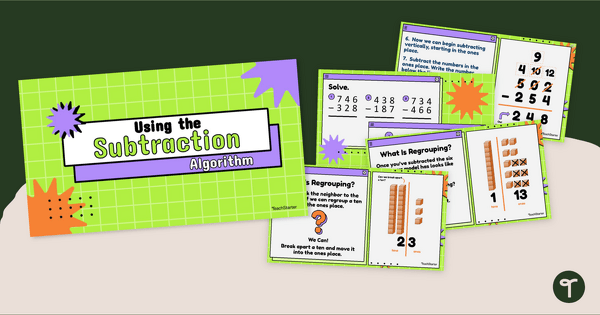
The Subtraction Algorithm – Teaching Presentation
Use this animated PowerPoint with your students when learning how to use the subtraction algorithm and borrowing.
- Plus Plan
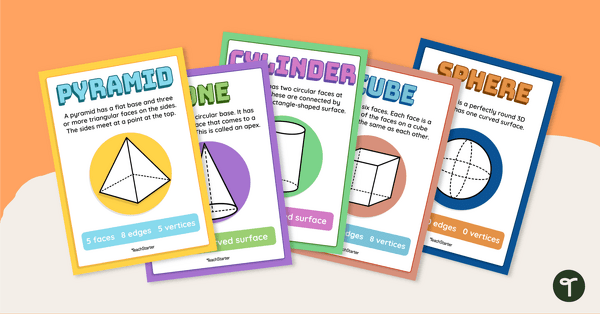
Properties of 3D Objects - Poster Set
Help your students identify the names and properties of common 3D objects with this set of five classroom posters.
- Free Plan
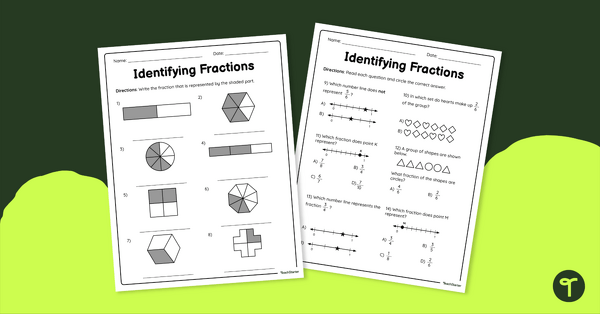
Identifying Fractions – Worksheet
Strengthen student understanding of fraction models, how to identify fractions on a number line and determine a fraction of a collection with this free worksheet.
- Free Plan
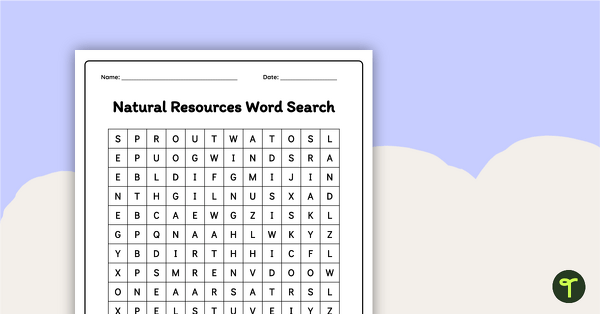
Natural Resources Word Search
Review the different natural resources with a word search.
- Plus Plan
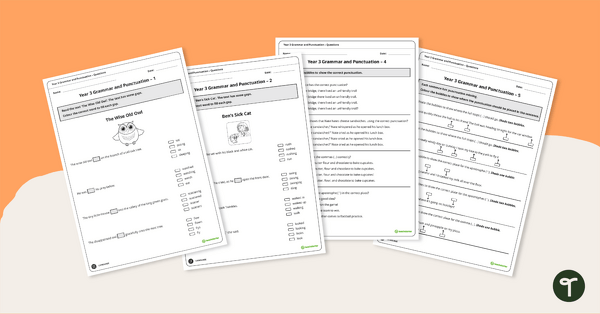
Grammar and Punctuation Assessment Tool – Year 3
A set of 5 grammar and punctuation assessment tools suited to Year 3 students.
- Plus Plan
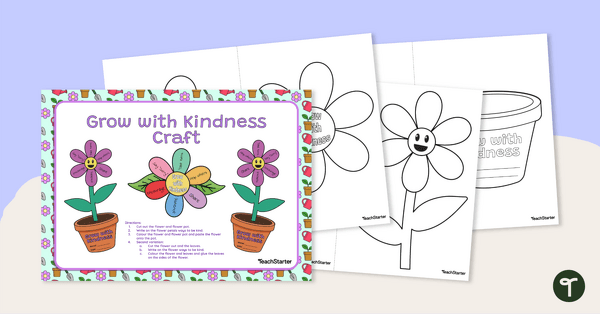
Grow with Kindness Craft
Promote kindness in the classroom with this engaging craft.
- Plus Plan
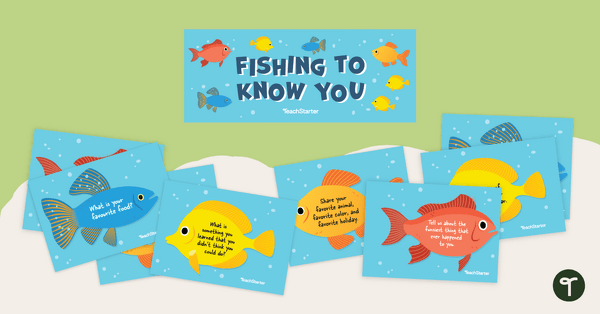
Fishing To Know You
A getting-to-know-you activity for the beginning of the year.
- Plus Plan
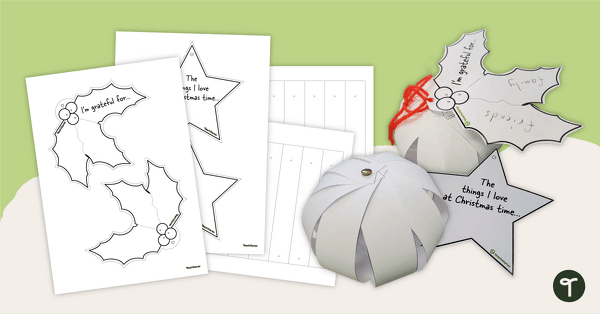
Printable Christmas Bauble Templates
Create a fun paper Christmas bauble with our 3D ornament template.
- Plus Plan
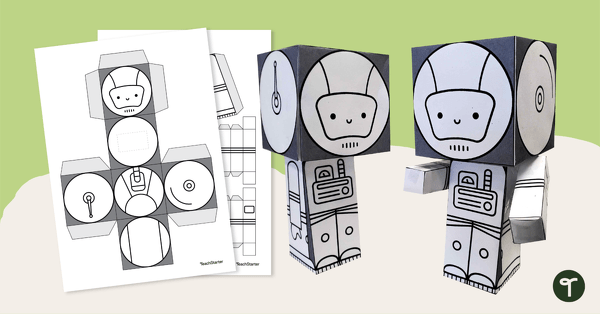
3D Object Astronaut Template
3D object nets to create an amazing astronaut!
- Plus Plan
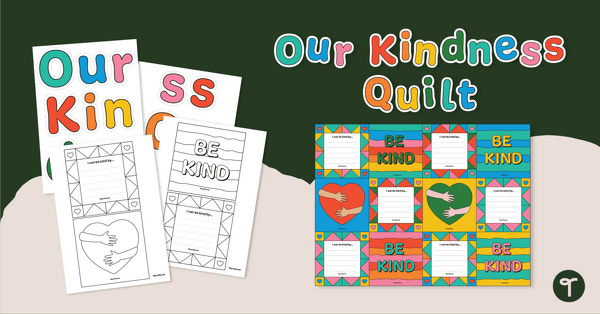
Kindness Quilt Display
Discuss and create a gorgeous kindness-themed classroom display.
- Free Plan
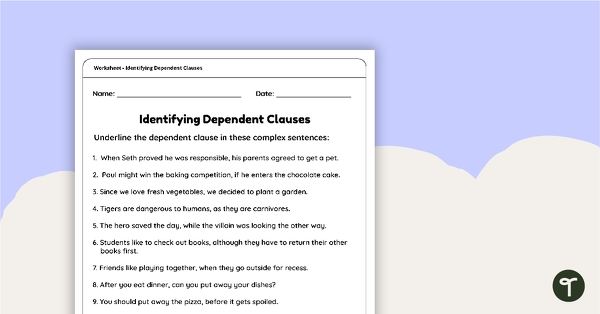
Identifying Dependent Clauses Worksheet
Practise identifying dependent clauses in complex sentences with a dependent clause worksheet.
- Plus Plan
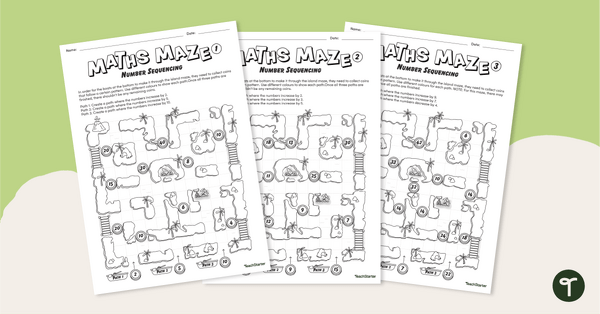
Maths Mazes (Number Sequencing)
Skip count your way through these mazes that focus on number sequencing.
- Plus Plan
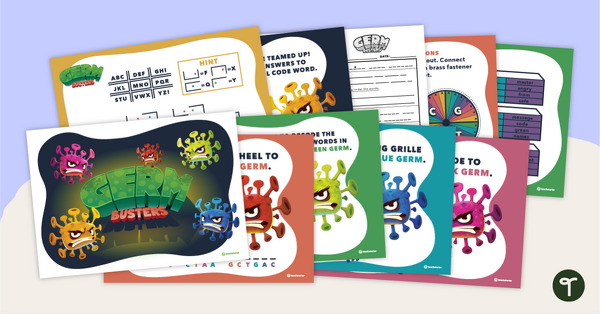
Germ Busters – Code Cracking Game
A whole class code cracking game where students solve clues related to personal hygiene.
- Plus Plan
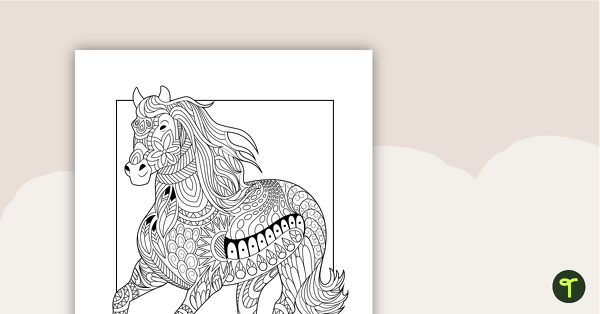
Horse Mindful Colouring In Sheet
A horse mindful colouring in sheet.